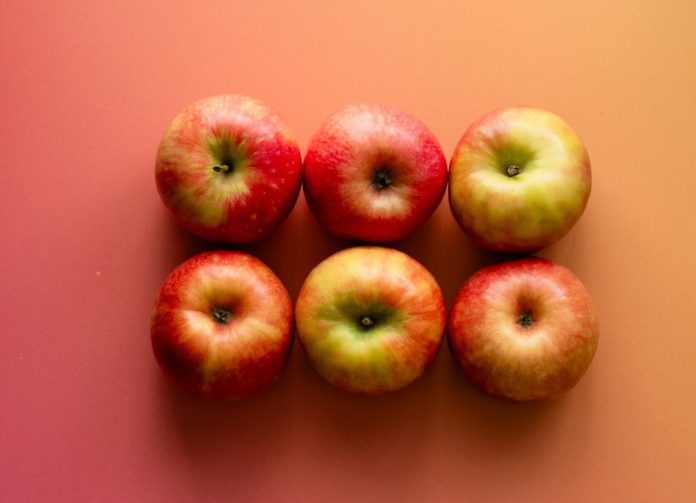
Apples are one of the most popular fruits around the world. They are not only tasty but also packed with nutrients that can be beneficial for your health.
For people with diabetes, eating apples might seem tricky due to their natural sugar content, but research shows that apples can actually be a good choice.
Apples are rich in dietary fiber, especially a type called pectin. Fiber is essential for maintaining good health, and it plays a significant role in managing diabetes. It helps to slow down the absorption of sugar into the bloodstream, which prevents spikes in blood sugar levels.
A medium-sized apple contains about 4 grams of fiber, which is a decent amount for a single serving.
Moreover, apples have a low glycemic index (GI). The GI is a measure of how quickly foods raise blood sugar levels. Foods with a low GI are better for managing diabetes because they cause a slower, more controlled increase in blood sugar.
Apples have a GI of around 36, which is considered low. This makes them a safe and healthy option for people with diabetes when eaten in moderation.
In addition to fiber, apples are loaded with vitamins and antioxidants. They contain vitamin C, which is good for the immune system, and various phytonutrients, which have antioxidant properties.
Antioxidants are important because they help protect your cells from damage and reduce inflammation, which is particularly beneficial for people with diabetes who are at a higher risk of infections and other complications.
Several studies have explored the relationship between apple consumption and diabetes. One study published in the American Journal of Clinical Nutrition found that people who ate apples regularly had a lower risk of developing type 2 diabetes compared to those who did not.
The study suggested that the fiber and antioxidants in apples contribute to better blood sugar control and overall health.
It’s also important to note that while apples are beneficial, they should be consumed as part of a balanced diet. Eating too many apples or any other fruit can still lead to excessive sugar intake, which is not advisable for diabetes management. The key is moderation and variety.
Besides apples, there are other fruits that are good for people with diabetes. Berries, such as strawberries, blueberries, and raspberries, are excellent choices. They are low in sugar and high in fiber and antioxidants.
Citrus fruits like oranges and grapefruits are also beneficial due to their high vitamin C content and low GI.
Pears are another good option. They are high in fiber and have a low to medium GI. Like apples, pears can help in controlling blood sugar levels. Kiwi is another fruit that fits well into a diabetes-friendly diet. It is rich in vitamin C, fiber, and has a low GI.
While fruits are a healthy part of any diet, it’s important to remember that the overall quality of the diet matters most. Combining fruits with other nutrient-rich foods like vegetables, whole grains, lean proteins, and healthy fats can provide a well-rounded diet that supports diabetes management.
In conclusion, apples and other low-GI fruits can be a great addition to a diabetes-friendly diet. They offer essential nutrients, fiber, and antioxidants that support overall health and help in managing blood sugar levels.
Remember to eat a variety of fruits in moderation and as part of a balanced diet to reap the maximum benefits. Always consult with a healthcare provider or a dietitian to tailor dietary choices to your individual needs and health goals.
Follow us on Twitter for more articles about this topic.
Copyright © 2024 Scientific Diet. All rights reserved.





